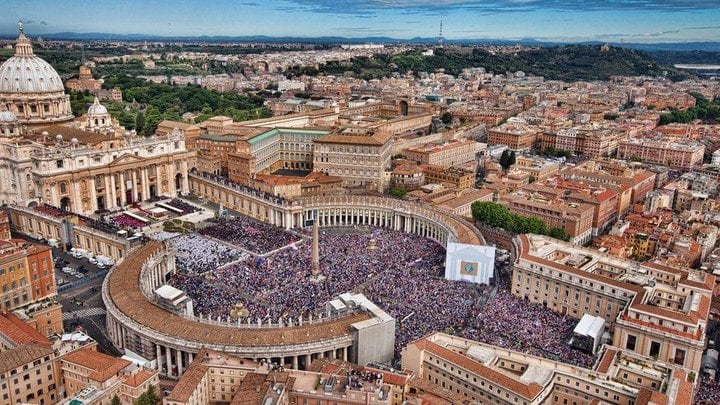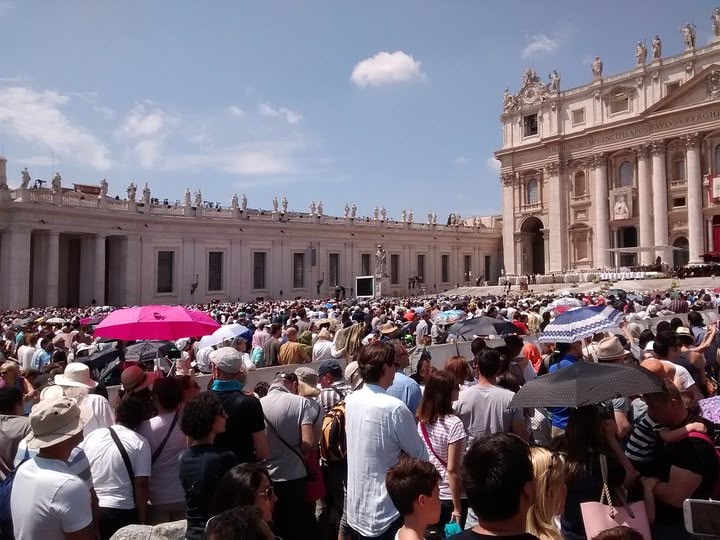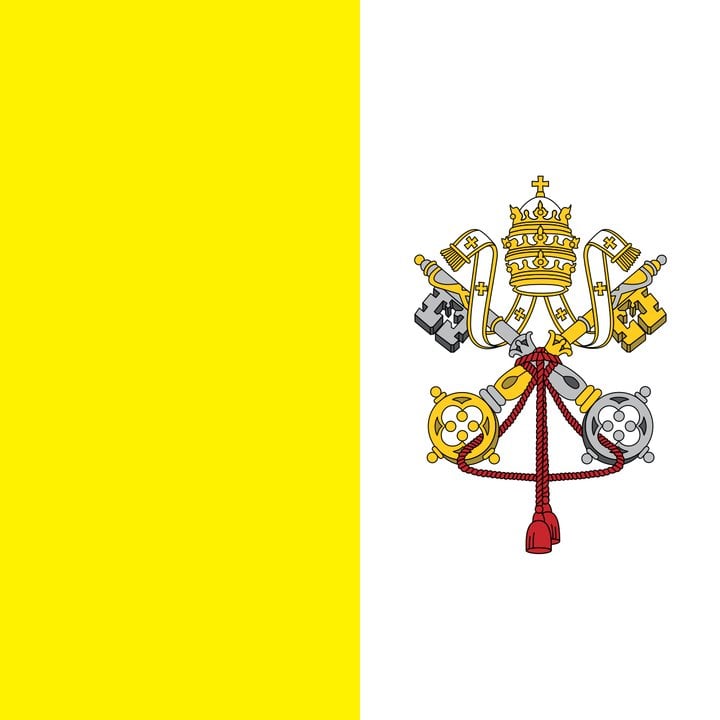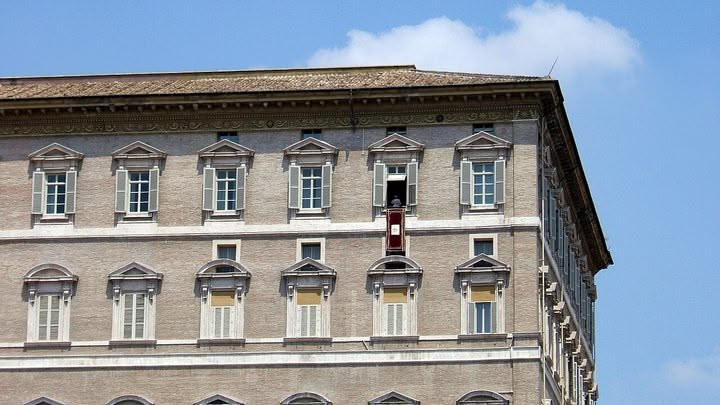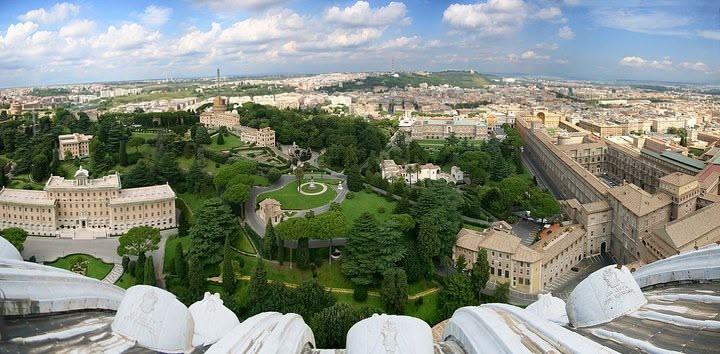The Vatican City 🇻🇦

Vatican City, officially the Vatican City State (Italian: Stato della Città del Vaticano; Latin: Status Civitatis Vaticanae), is a landlocked country, city-state, microstate, and enclave surrounded by, and historically a part of Rome in Italy. It became independent from Italy in 1929 with the Lateran Treaty, and is a distinct territory under "full ownership, exclusive dominion, and sovereign authority and jurisdiction" of the Holy See, which is itself a sovereign entity under international law, maintaining the city-state's temporal power, governance, diplomatic, and spiritual independence. The Vatican is also a metonym for the pope, the Holy See, and the Roman Curia.

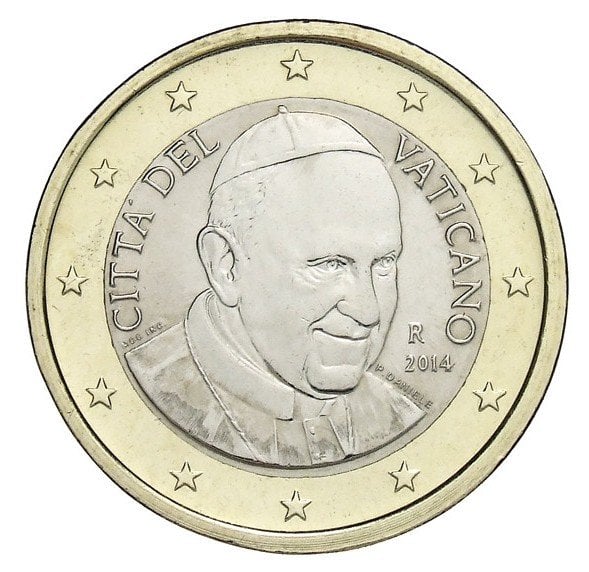
With an area of 49 hectares (121 acres) and a population of about 882 in 2024, it is the smallest sovereign state in the world both by area and by population. It is among the least populated capitals in the world. As governed by the Holy See, Vatican City State is an ecclesiastical or sacerdotal-monarchical state ruled by the pope, who is the bishop of Rome and head of the Catholic Church. The highest state functionaries are all Catholic clergy of various origins. After the Avignon Papacy (1309–1377) the popes have mainly resided at the Apostolic Palace within what is now Vatican City, although at times residing instead in the Quirinal Palace in Rome or elsewhere.
The Holy See dates to early Christianity and is the principal episcopal see of the Catholic Church, which in 2018 had about 1.329 billion baptised Catholics in the world, in the Latin Church and 23 Eastern Catholic Churches. The independent state of Vatican City came into existence in 1929 via the Lateran Treaty between the Holy See and Italy, which spoke of it as a new creation, not as a vestige of the much larger Papal States (756–1870), which had previously encompassed much of Central Italy.
Vatican City contains religious and cultural sites such as St. Peter's Basilica, the Sistine Chapel, the Vatican Apostolic Library, and the Vatican Museums. They feature some of the world's most famous paintings and sculptures. The unique economy of Vatican City is supported financially by donations from Catholic believers, by the sale of postage stamps and souvenirs, fees for admission to museums, and sales of publications. Vatican City has no taxes, and items are duty-free.
Within the territory of the Vatican City are the Vatican Gardens (Italian: Giardini Vaticani), which account for about half of the Vatican territory. The gardens, established during the Renaissance and Baroque era, are decorated with fountains and sculptures.
The gardens cover approximately 23 hectares (57 acres). The highest point is 60 metres (197 ft) above mean sea level. Stone walls bound the area in the north, south, and west.
The gardens date back to medieval times when orchards and vineyards extended to the north of the Papal Apostolic Palace. In 1279, Pope Nicholas III (Giovanni Gaetano Orsini, 1277–1280) moved his residence back to the Vatican from the Lateran Palace and enclosed this area with walls. He planted an orchard (pomerium), a lawn (pratellum), and a garden (viridarium).
The politics of Vatican City takes place in the context of an absolute elective monarchy and being governed by the Holy See, in which the head of the Catholic Church holds power. The Pope exercises principal legislative, executive, and judicial power over the State of Vatican City, which is a rare case of a non-hereditary monarchy.
State and Holy See
The Vatican City State, created in 1929 by the Lateran Pacts, provides the Holy See with a temporal jurisdiction and independence within a small territory. It is distinct from the Holy See. The state can thus be deemed a significant but not essential instrument of the Holy See. The Holy See itself has existed continuously as a juridical entity since Roman Imperial times and has been internationally recognised as a powerful and independent sovereign entity since Late Antiquity to the present, without interruption even at times when it was deprived of territory (e.g. 1870 to 1929).
Vatican City is one of the few widely recognised independent states that has not become a member of the United Nations. The Holy See, which is distinct from Vatican City State, has permanent observer status, with all the rights of a full member except for a vote in the UN General Assembly.
Structure
The government of Vatican City has a unique structure. As governed by the Holy See, the Pope is the sovereign of the state, but he is supported by different bodies. Legislative authority is managed, in the pope's name, by the Pontifical Commission for Vatican City State, a body of cardinals appointed by the pope for five-year periods. Executive power is exercised by the president of that commission, who is consequently also the president of the governorate, assisted by the general secretary and the deputy general secretary. The state's foreign relations are entrusted to the Holy See's Secretariat of State and diplomatic service.
Nevertheless, the Pope has absolute power in the executive, legislative, and judicial branches over Vatican City, and is thus the only absolute monarch in Europe.
Operationally, there are departments that deal with health, security, telecommunications and other matters.
Sede vacante
The Cardinal Camerlengo presides over the Apostolic Camera, to which is entrusted the administration of the property and protection of other papal temporal powers and rights of the Holy See during the period of the empty throne or sede vacante (papal vacancy). Those of the Vatican State remain under the control of the Pontifical Commission for Vatican City State. Acting with three other cardinals chosen by lot every three days, one from each order of cardinals (cardinal bishop, cardinal priest, and cardinal deacon), he in a sense performs during that period the functions of head of state of Vatican City. All the decisions these four cardinals take must be approved by the College of Cardinals as a whole.
Papal nobility
The nobility that was closely associated with the Holy See at the time of the Papal States continued to be associated with the Papal Court after the loss of these territories, generally with merely nominal duties. They also formed the ceremonial Noble Guard. In the first decades of the existence of the Vatican City State, executive functions were entrusted to some of them, including that of delegate for the State of Vatican City, now denominated president of the Commission for Vatican City. With the motu proprio Pontificalis Domus of March 1968, Pope Paul VI abolished the honorary positions that had continued to exist until then, such as Quartermaster general and Master of the Horse.
Head of state
As Vatican City is governed by the Holy See, the Pope is ex officio head of state of Vatican City, a function dependent on his primordial function as bishop of the diocese of Rome and head of the Catholic Church. The term "Holy See" refers not to the Vatican state but to the pope's spiritual and pastoral governance, largely exercised through the Roman Curia. His official title with regard to Vatican City is Sovereign of the State of the Vatican City.
Pope Francis, born Jorge Mario Bergoglio in Buenos Aires, Argentina, was elected on 13 March 2013. His principal subordinate government official for Vatican City as well as the country's de facto head of government is the President of the Pontifical Commission for Vatican City State, who since 1952 exercises the functions previously belonging to the Governor of Vatican City. Since 2001, the president of the Pontifical Commission for Vatican City State also has the title of president of the Governorate of the State of Vatican City. The president is Spanish cardinal Fernando Vérgez Alzaga, who was appointed on 1 October 2021.
The death of Pope Francis in April 2025 vacated the head of state position, and a papal conclave will be held in May 2025 to elect a new Pope.
